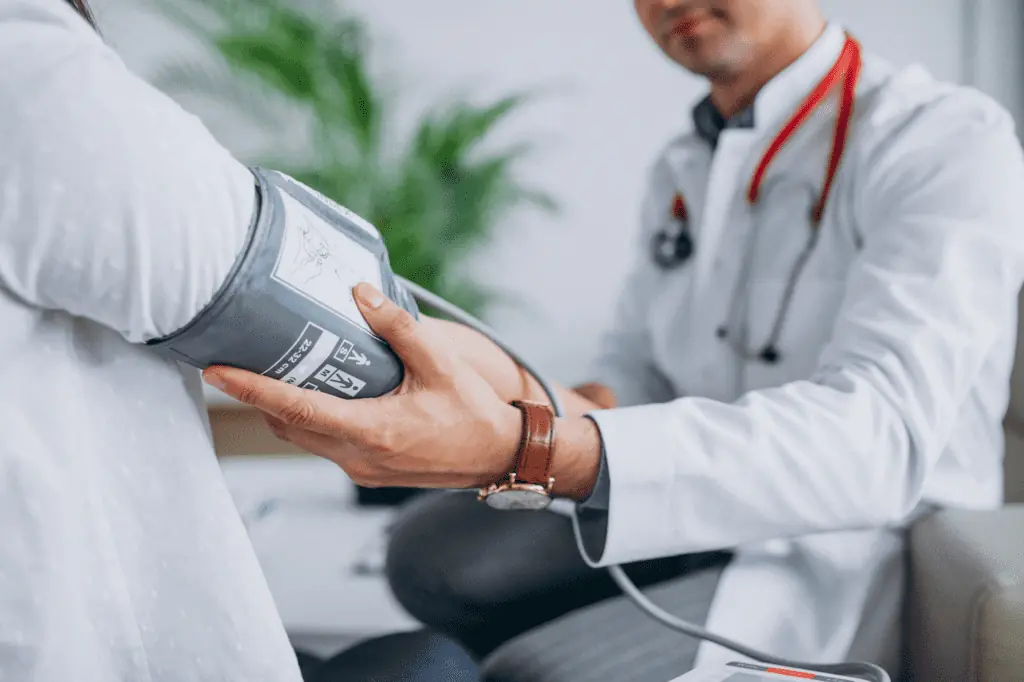
Everybody gets headaches, and most of us know what it’s like to have a pounding one. But there’s a type of headache that’s different from other headaches—and it can be deadly. Hypertension headaches are a common problem for people with high blood pressure. They can range from mild to severe in intensity and affect individuals of all ages and genders.
In this article, we’ll look at the four things you should know about hypertension headaches.
What Are Hypertension Headaches?
If you’re one of the more than 50 million people in the United States who suffer from high blood pressure, you know it can lead to all kinds of health issues. And while many of those issues are serious, some are downright scary—like having a stroke or heart attack.
But did you know that high blood pressure can also cause headaches? Hypertension headaches are a common symptom of high blood pressure. They occur when the arteries in your brain become narrow and hard, increasing the risk of stroke. Hypertension (also known as “high blood pressure”) is a common condition that affects nearly one-third of adults in the U.S.
The severity of these headaches can vary from mild to severe. Some people experience a dull ache behind their eyes, while others experience throbbing pain in the temples. Hypertension headaches are often accompanied by nausea, dizziness, blurred vision, and sensitivity to light. These symptoms may last for hours or days at a time.
While hypertension headaches are fairly common, they should always be treated as a medical emergency. If you experience a hypertension headache for more than one week straight, or if your doctor determines that you have high blood pressure without any other symptoms present (such as blurred vision), it’s important to seek treatment immediately.
Causes and Risks of Hypertension Headaches
Hypertension headaches can be a pain! But they’re not just a pain in your head. They’re also a real risk to your health. Here are some of the causes and risks of hypertension headaches:
High Blood Pressure
Hypertension headaches are usually caused by high blood pressure. When the arteries become narrower and stiffer over time, they are less able to pump blood through the body properly. This can cause an increase in pressure inside the skull, resulting in pain at the base of the skull or behind one eye.
The increased pressure can also cause a reduction in blood flow to the brain, which can cause symptoms such as dizziness, nausea, or vomiting. Some people may also experience blurred vision during a hypertensive headache attack.
Family History
Family history is one of the most common risk factors for developing high blood pressure. If your parents or other relatives have high blood pressure, then there’s a good chance that you will develop it too.

How to Prevent Hypertension Headaches
If you suffer from hypertension, you may also be prone to headaches. In fact, it has been found that nearly half of all people with hypertension also experience headaches. If you are one of them, you know how frustrating it can be to deal with this condition. However, there are some things that you can do to help prevent these headaches from happening in the first place.
Drink plenty of water
Water is essential for keeping our bodies healthy and functioning properly. It helps regulate our metabolism, which means that our bodies will be able to process food more efficiently. Drinking enough water can also help reduce stress levels and boost energy levels throughout the day, which may help prevent those headaches before they even start!
Get adequate sleep
Sleep is essential for maintaining good mental health as well as physical health. Getting enough sleep will help keep your body functioning at its best so that it doesn’t have any issues processing food properly and regulating blood pressure levels throughout the day (which could lead to headaches).
Maintain a healthy weight
If you’re overweight or obese, losing weight will help lower your blood pressure and reduce the risk of developing hypertension headaches.
Avoid salt
Salt makes your body retain water and causes high blood pressure, which leads to hypertension headaches. Try cutting down on the amount of salt you’re eating by trying some new recipes with less sodium or by using herbs instead of salt. If you want to use salt, go for sea salt or Himalayan pink salt—it’s healthier than table salt and won’t raise your blood pressure as much.
Cut down on caffeine and sugar
If you’re looking to prevent hypertension headaches, one of the best things you can do is cut down on caffeine and sugar.
Caffeine is a stimulant that raises blood pressure. So if you’re drinking coffee or tea every day, you may be contributing to your hypertension.
Likewise, sugar is a known cause of high blood pressure. If you’re consuming more than three teaspoons of added sugar per day, that’s too much for your body to handle.
Eat healthy foods
Eating healthy foods is one of the best ways to prevent hypertension headaches. If you want to cut down on your blood pressure, then you should try eating more fruits, vegetables, and whole grains. These foods will help to keep your blood vessels clear and healthy.
It’s also important to make sure that you are getting plenty of calcium in your diet. Calcium helps to relax the muscles around your blood vessels, so they don’t constrict as much when they need it. This helps reduce high blood pressure-related headaches!
When You Should Call The Doctor
When you’re dealing with hypertension headaches, it’s tempting to just tough it out and try to manage the pain until it goes away—especially if you’ve had them before. But sometimes, headaches can be more than just a nuisance: they can signify something is wrong.
If you’re experiencing any of the following symptoms, it might be time to call the doctor:
• Your headache is accompanied by nausea or vomiting
• You have blurred vision or light sensitivity during your headache
• You have other symptoms such as weakness, confusion, fatigue, or loss of balance
• Your headache is so severe that it’s difficult for you to function
• You have headaches on a regular basis
Bottom Line
The more you know about your body, the better you can take care of yourself. And knowing what to do when you have a headache is one of those things that can make a huge difference in how well you feel and how healthy you are.
So if you’re worried about your blood pressure or wondering whether or not it’s time to call your doctor, we hope this article has given you some insight into what’s going on inside your body. If you need help figuring out what to do next, don’t hesitate to reach out—we’re here for you!